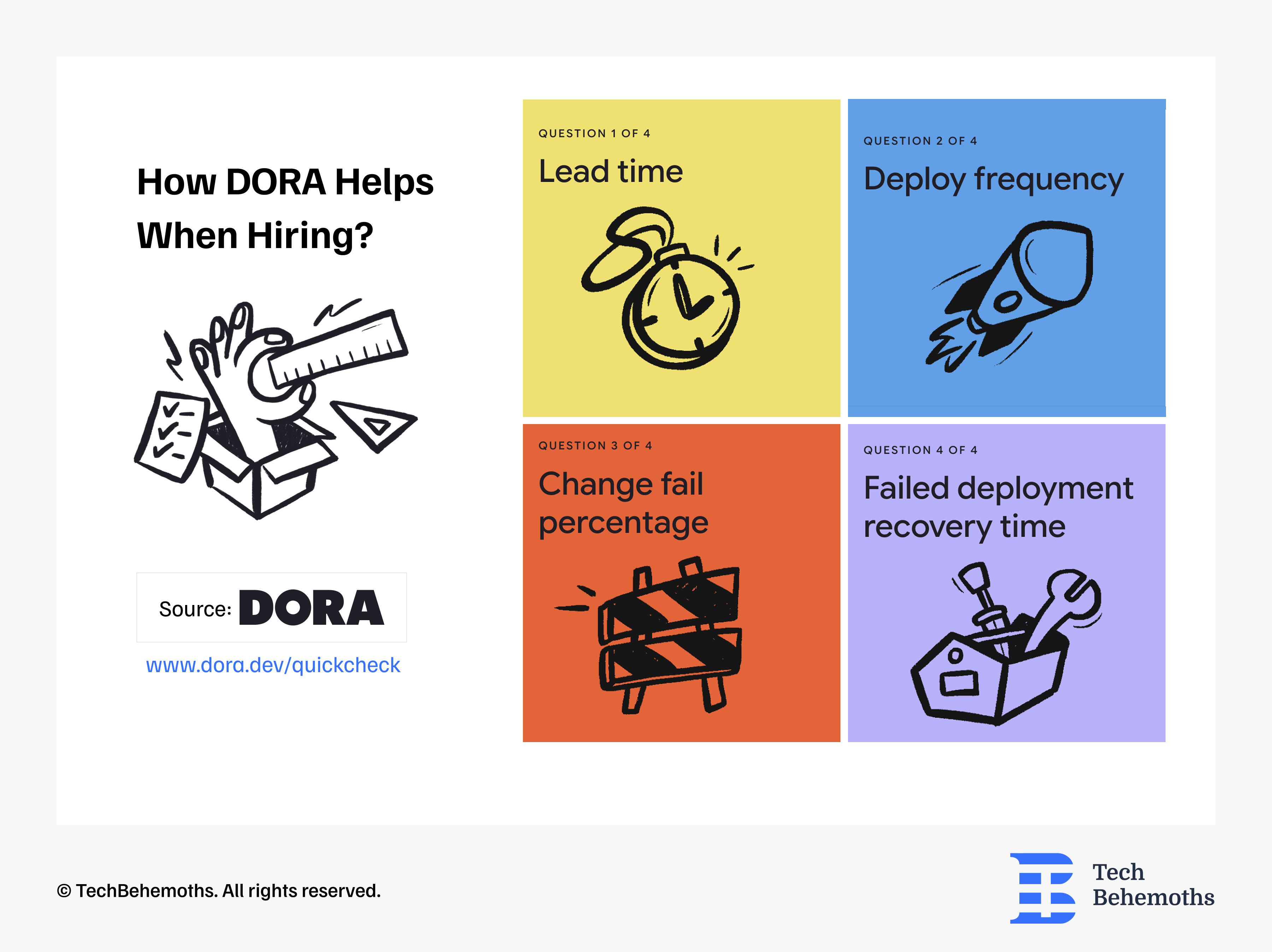7 Tips to Evaluate a Software Development Team Before Hiring

Summary
Selecting a software development team requires more than technical expertise. The right team turns ideas into reliable products, ensuring quality, speed, and long-term value.
To choose effectively, evaluate their skills, domain expertise, past work, communication, workflows, delivery process, quality assurance, pricing, and cultural fit. Use proven frameworks to stay objective and avoid common hiring mistakes like picking the cheapest or fastest option.
Software helps to ease the company’s operations and accelerate revenue generation.
Companies have to spend a lot in the beginning because the costs of custom software development are high; however, these expenses lead to long-term financial benefits.
The enterprise software spending market is expected to reach $1.25 trillion in 2025, as companies invest in software solutions for success. Additionally, 72% of organizations choose to outsource software development to access expert talent and speed up their development process.
It is well known that the quality of a software product also depends on how proficient the development team is. But to find a good team, you need to know what to look for when hiring.
Let’s break it all down.
What is a Software Development Team?
A software development team consists of experts who create software products (apps, web platforms, other digital systems). The team structure includes developers and designers and quality assurance engineers and project managers, and occasionally other domain experts. Each team member contributes to achieving successful software delivery that meets requirements and operates correctly.
It's important when hiring a software development team to see what the team structure is, who is responsible for what, and how they collaborate. Talk to different team members, not just the project lead.
A well-set-up team that works well together is the key to success, because even the best developers can’t do it all alone.
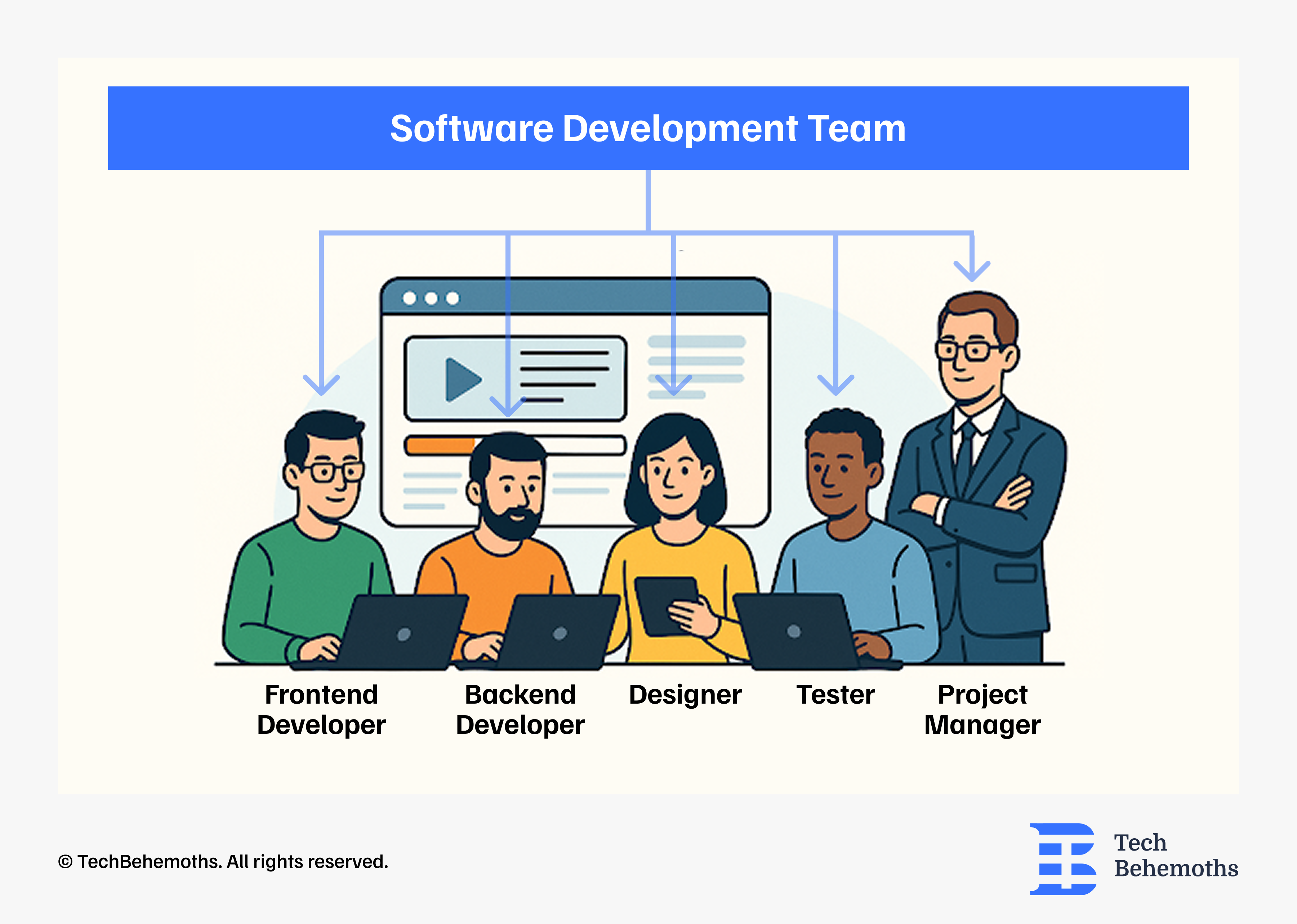
Why Do Companies Need a Software Development Team?
The main purpose of a software development team is to turn your business idea into a working software product. Each team member has their own role in the software development process. Developers create and support the codebase, while designers focus on creating user-friendly interfaces with good visual design. QA and testers identify bugs for developers to fix, and project managers handle team coordination and schedule management, and client communication.
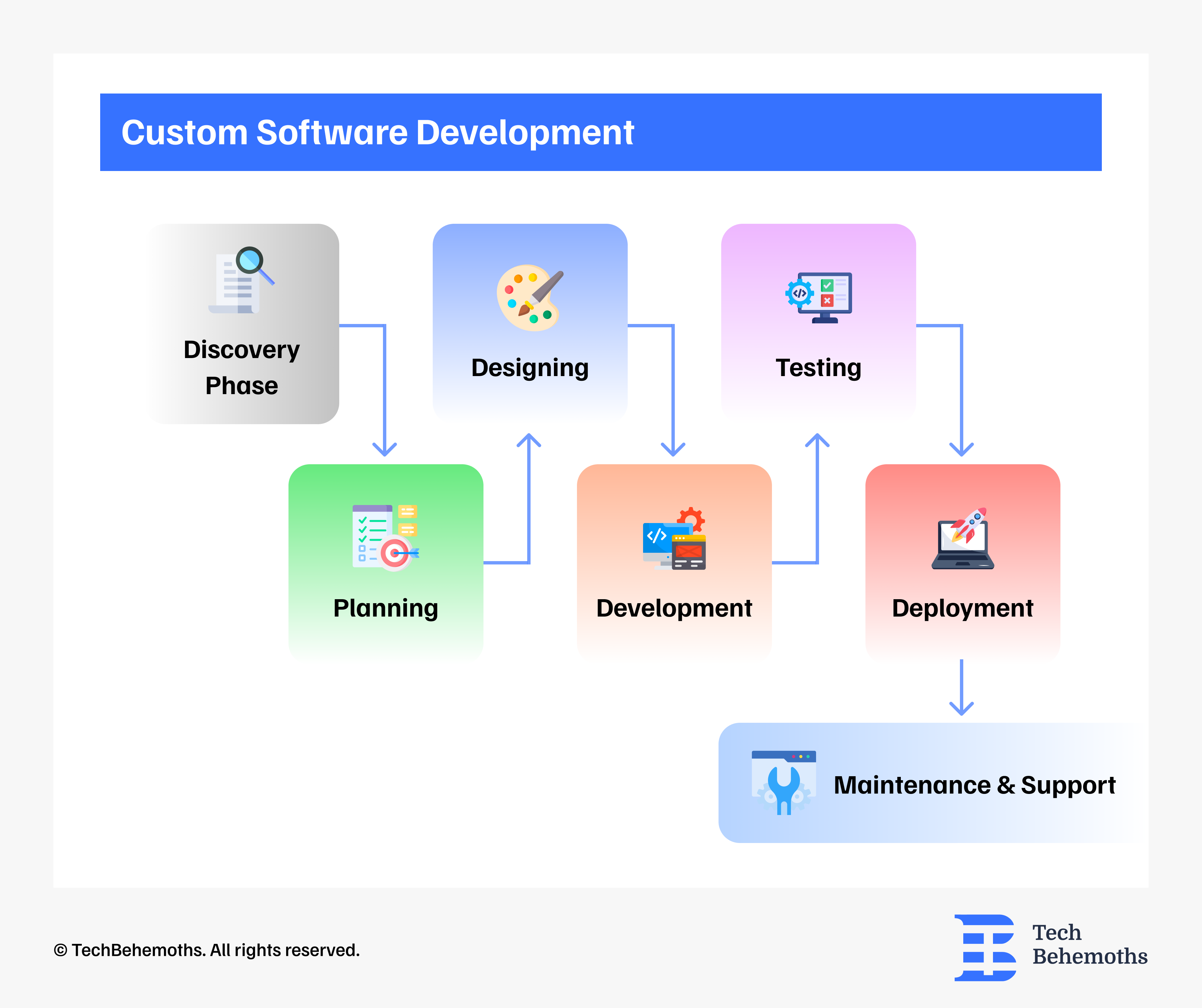
How to Evaluate a Software Developer's Team Before You Hire Them?
We'll explore the 7 most important questions when hiring a developer’s team, the most important evaluation dimensions, and provide some tips on how to effectively measure each one.
1. Can They Build It Well?
What to evaluate: technical skills and problem-solving
The foundation of any successful development team is its ability to build strong and reliable software. The process requires more than programming, as it involves turning conceptual ideas into operational products, and sometimes it can be challenging; that’s why problem-solving is essential too.
You need to analyze how strong the team's technology stack is, their ability to design scalable and secure systems, what their approach to problem-solving is, and whether they are familiar with DevOps and automation.
How to evaluate:
- Review the actual code examples to determine how well they present their information and how they are structured.
- Ask them to describe the basis for selecting those particular technical solutions.
- Run a technical interview or a short live coding session, in case you are commissioning for large, niche technical projects or out-staffing.
- Review their portfolio to see actual completed work along with simulated examples.
| Skill | Example |
|---|---|
| Programming Languages & Frameworks | JavaScript and React, Python for automation |
| Front-End & Back-End | Responsive development, API integrations |
| Databases | MySQL for structured data, MongoDB for flexible/unstructured data |
| Version Control | Git and GitHub to manage and share code |
| Architecture | Breaking a big app into smaller parts (microservices) |
| Testing & QA | Using Jest to check that proper feature functions are ensured |
| DevOps & Deployment | Docker to package apps, AWS to host them |
| Security | Encrypted passwords, secure logins |
| Performance | Caching assets on CDNs to make the site faster |
| Documentation | Clear README files and wiki-like documentation for the project |
Business Domain Expertise
A critical yet frequently overlooked factor when selecting a software development team is their proven expertise in your specific business domain. For complex or enterprise-grade projects, deep domain knowledge is non-negotiable. Even teams with exceptional technical skills and streamlined delivery processes may struggle without it. This will lead to extended discovery phases, misaligned feature sets, or suboptimal solutions. Prioritizing teams with a track record in your industry ensures they have the contextual nuances, accelerating development and aligning deliverables with strategic business objectives.
2. What's Their Track Record?
What to evaluate: past projects, results, and experience
Past performance is a strong indicator of what you can expect. Real results prove more powerful than any promise made.
You have to look at similar projects they’ve delivered, product scale, complexity, and outcomes, and the longevity of their previous builds, client feedback, and testimonials.
How to evaluate:
- Review case studies in detail
- Check whether their products are still live
- Check clients' reviews and reach out to a few of them directly whenever possible, to know more about their work collaboration.
Note: The ideal feedback for the client will be one in which you express satisfaction with the work done, the desire to complete another project with the same team, and the recommendation to another client to choose this software development team, as well.
For example, on TechBehemoths, each company profile includes a “Portfolio” section where potential clients can explore completed projects, read authentic feedback, and get a clear sense of the team’s expertise. This makes it easier to evaluate their performance and build trust before starting a new collaboration.
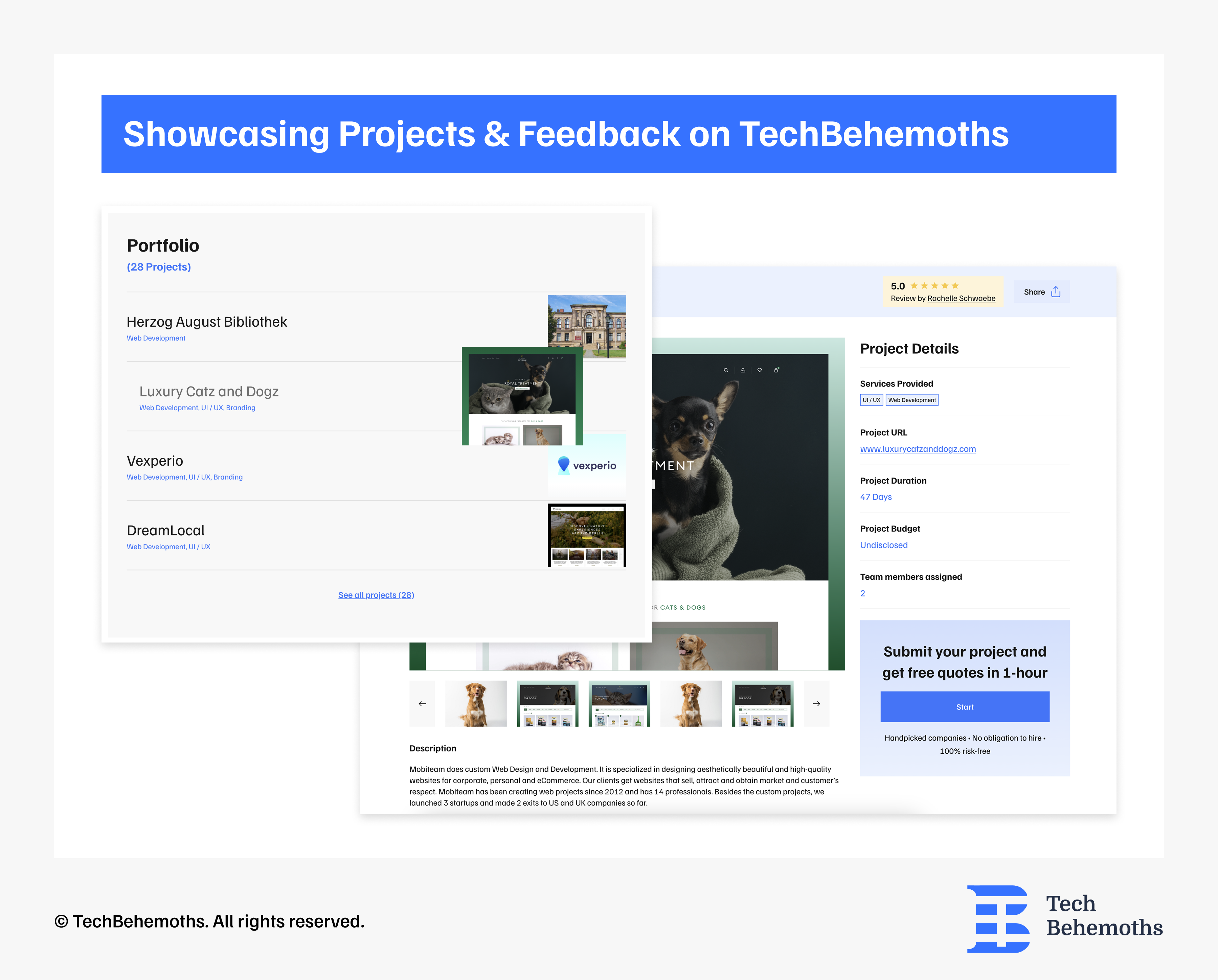
3. How Do They Work Day to Day?
What to evaluate: communication, workflows, and project management
The way a team performs its work tasks determines its professionalism. Strong developers who lack proper communication and structure will eventually fail in their work.
That's why it's important to ask the team to show their methods for sprint execution and work organization practices, to be sure that they are responsive and clear in communication. You can also ask them about the tools they use in tracking and reporting the project, and the team's strategy for dealing with changes and blockers.
How to evaluate:
- Observe their communication approach when you first start talking to them. It should be clear, professional, fast, and easy to follow.
- Ask for a sample sprint board or report, and analyze them.
- Simulate a change in scope and see how they respond (e.g, Imagine we need to move the launch date up by two weeks. / Suppose our budget decreases mid-project. How would your team approach that?)
- Check how they document progress and decisions.
AI Workflow Oversight
The rise of AI-enhanced developer tools and agentic workflows offers significant efficiency gains, enabling faster time-to-market and cost optimization. However, these tools can introduce critical errors if not carefully managed.
As a client, you must enforce rigorous oversight by clearly designating which project components - particularly mission-critical ones - require full human control.
This ensures quality, mitigates long-term risks, and prevents costly surprises, balancing AI-driven productivity with robust oversight.
4. How Do They Deliver?
What to evaluate: processes, tools, and adaptability
A reliable team occurs when there is a well-defined delivery process. The project demonstrates their time management strategy and their ability to handle project scope changes and unforeseen events.
Pay attention to delivery methodology (Agile, Scrum, Kanban), CI/CD pipelines, automated testing, and documentation habits and their flexibility.
How to evaluate:
- Ask for a step-by-step walkthrough of a typical delivery.
- Check how they plan releases and deal with delays.
- Look at their project management tools.
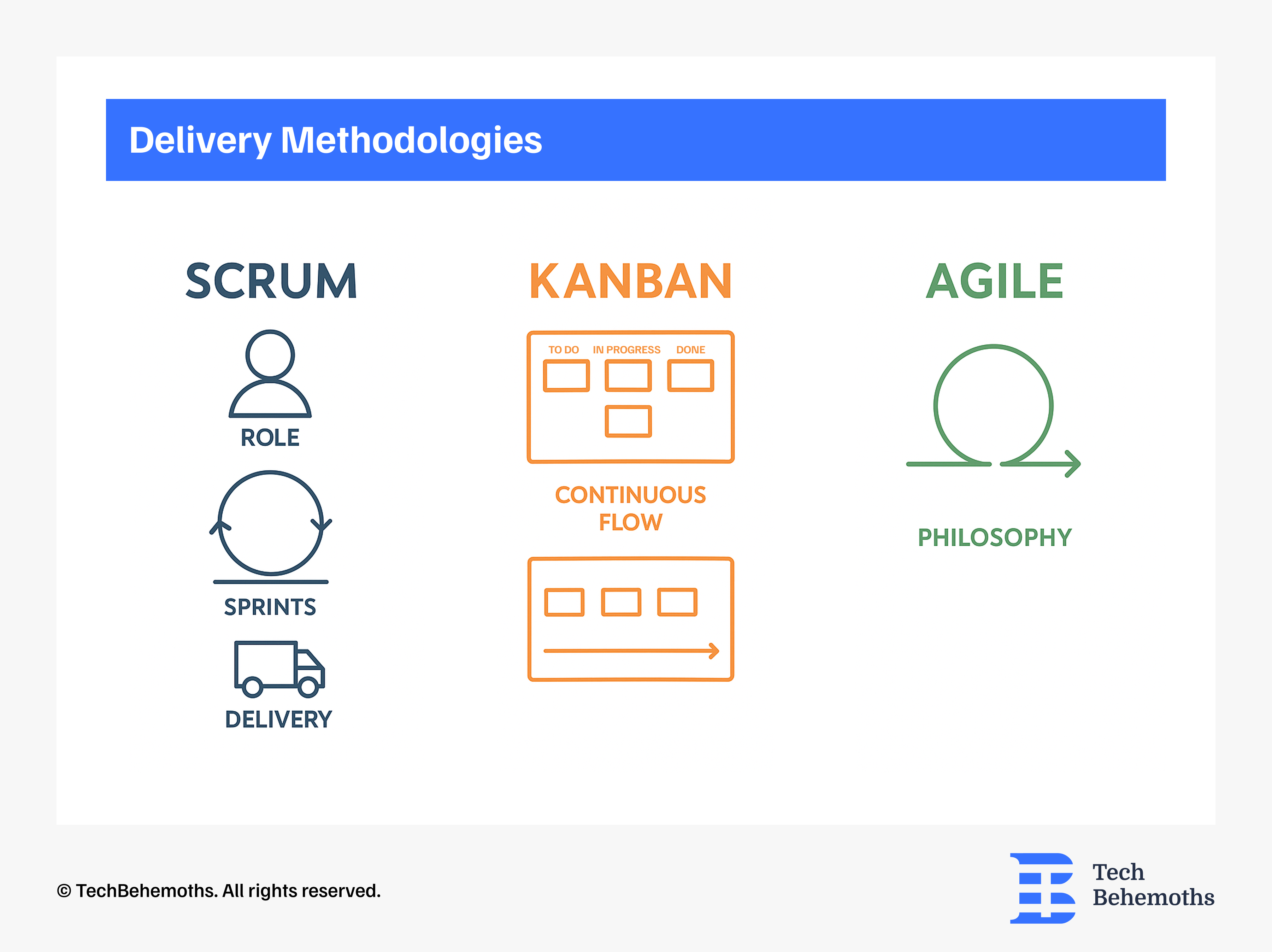
5. Is the Quality There?
What to evaluate: testing, security, and reliability
Fast delivery becomes meaningless when the product contains numerous defects. The long-term success depends on product quality.
Be attentive to the QA and testing coverage, the system tracks bugs and the time it takes to respond to them, security practices and compliance, and post-release maintenance.
How to evaluate:
- Request access to the development team's QA reports and test plans for evaluation purposes.
- Observe their system for tracking and resolving defects.
- Review their incident response process.
- Check if security elements exist as fundamental components of their operational workflow.
Important! Quality extends beyond testing because it should be established from the beginning of development.
![]()
6. Are the Costs Clear?
What to evaluate: pricing, scope, and transparency
Good partnerships are built on clear expectations and transparent pricing, which helps to prevent unnecessary conflicts later.
From the very beginning, we recommend looking at the cost structure and pricing model the software development team offers, including maintenance and support costs, and how they handle scope changes.
How to evaluate
- Ask for a detailed breakdown of all costs involved.
- Compare their pricing against standard market rates (research what their direct competitors are charging, check average hourly rates based on the geographic location, compare rates based on the experience of the developers - junior, mid-level, senior)
- Simulate a scope change.
- Study all elements within the contract document.
And remember, the transparency of costs leads to trust; vice versa, ambiguous pricing systems generate disagreements between involved parties.
Cost to Hire a Software Development Team
Rates can vary a lot depending on where the team is based. In Eastern Europe, it’s usually around $25–$50/hour, in Latin America $30–$70/hour, and in the US or Western Europe, it can go up to $80+.
According to TechBehemoths, the most common price range is between $30 and $70 per hour, chosen by 36.8% of companies. Close behind, 21% of companies operate under $30 per hour. This segment typically includes entry-level to mid-level providers, small studios, or offshore teams.
Another 21% of companies fall in the $70–$150/hour range, a segment that typically indicates greater maturity, advanced technical capabilities, or location in more expensive markets.
At the top end, only 4.9% of companies price their services between $150 and $250/hour, and only 1% charge above $250/hour. These firms typically target enterprise-level projects, niche technologies, or offer specialized expertise that warrants premium rates.
The key is to find a balance between price and quality, not just go for the cheapest option.
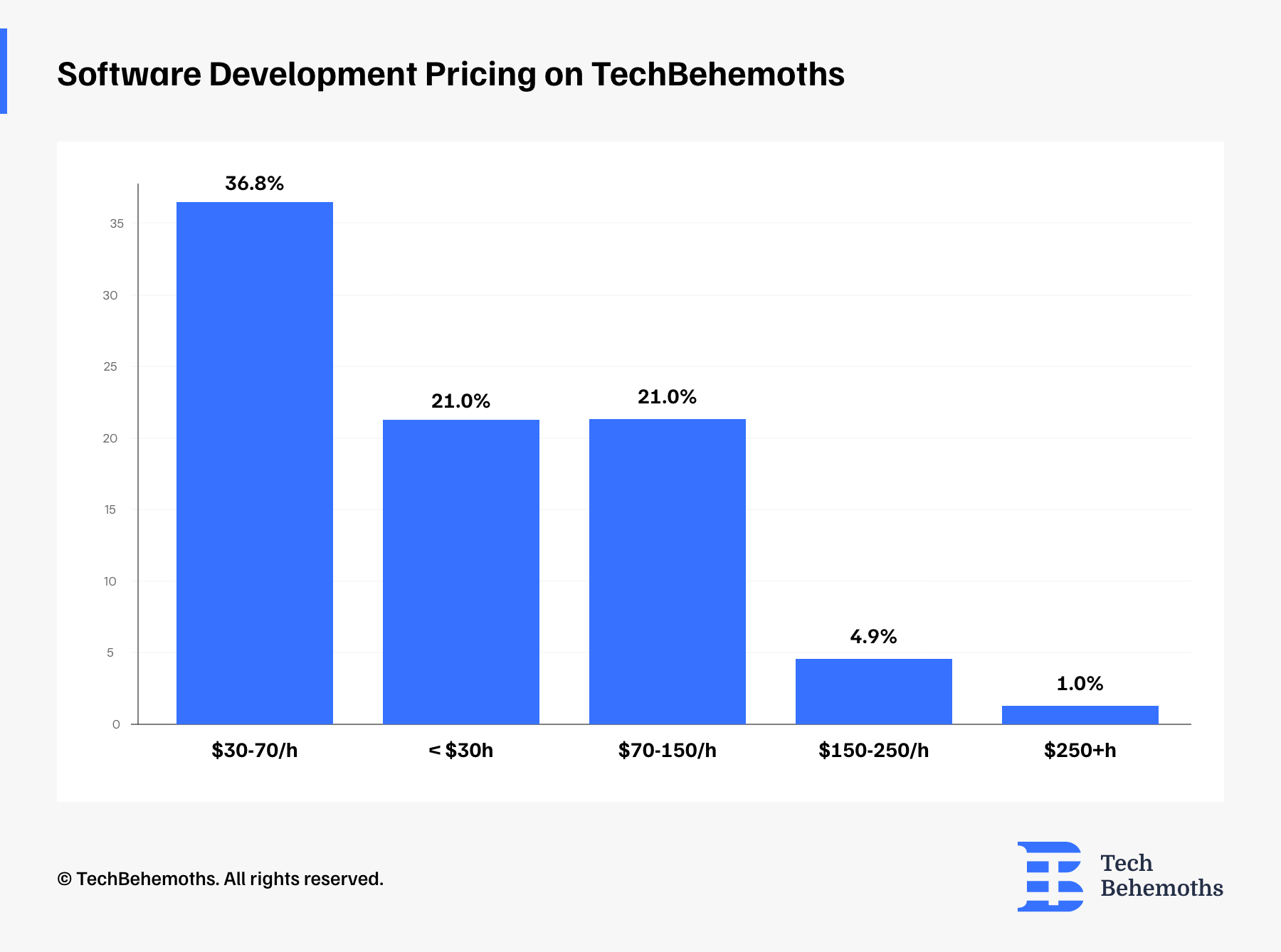
7. Can We Work Well Together?
What to evaluate: culture, alignment, and collaboration
A successful collaboration depends on effective collaboration and compatibility between the teams. For a good cultural alignment and fit between teams, look at time zone and communication rhythm, openness to feedback, shared work values, and how well the development team understands the company's objectives.
How to evaluate:
- Watch their listening behavior during phone calls.
- Observe their communication style.
- Use scenario-based questions to determine their approach when disagreements occur.
- Assess their level of initiative and proactive behavior.
- Trust your instincts about your ability to work effectively with this team.
With answers to all these questions, you already have important qualitative insights. However, hard metrics can help make things clearer and unbiased.
Key Metrics to Keep in Mind
Use objective performance metrics to back your decision, as well.
| Category | Metrics | What does it tell you |
|---|---|---|
| Delivery & Flow | Lead Time, Deployment Frequency, Cycle Time, Throughput | Speed and agility |
| Quality & Stability | Change Failure Rate, MTTR, Defect Rate, Code Coverage | Reliability and resilience |
| Developer Experience | Code Review Speed, Feedback Loop Quality | Collaboration and communication |
| Output Quality | Code Clarity, Product Longevity, Bugs | Long-term maintainability |
These metrics allow you to move from impressions to evidence, making the evaluation more structured and reasoned. To go further, you can rely on industry frameworks DORA and SPACE can measure performance and evaluate how well software development teams work. They can absolutely help you when hiring or choosing a development team, because they give you clear, objective criteria to evaluate them by.
How DORA Helps When Hiring
DORA focuses on how well a team delivers software, its speed, stability, and recovery. When evaluating a potential team, you can ask these 4 questions based on DORA 4 metrics:
- How often do you release updates
- to production? To find out the frequency of deployment.
- How long does it usually take from committing code to deployment? This answer will indicate the lead time for changes.
- How often do your releases cause issues in production? The answer will speak about the change in failure rate.
- How quickly can you recover from a failed deployment? Tells about MTTR (Mean Time to Repair)
You’re not asking them to give you only numbers, but you’ll learn a lot from how they answer these questions. Teams that know and track these metrics usually have mature processes and reliable delivery. Teams that can’t answer or don’t measure anything may lack structure
How Space Helps When Hiring
Unlike DORA, SPACE looks at how teams work and collaborate, not just how fast they deliver.
When evaluating a team, you can ask the following:
- How do you communicate internally?
- How fast are code reviews completed?
- How do you ensure developers aren’t overloaded or blocked?
- How do you keep team members aligned during projects?
- How do you measure team satisfaction or burnout?
An experienced team will describe solid communication and collaboration practices. With such a team, it is more probable to have a healthy collaboration, fast feedback loops, and good communication, making it easier to work with. This means fewer delays, better understanding, and stronger partnerships.
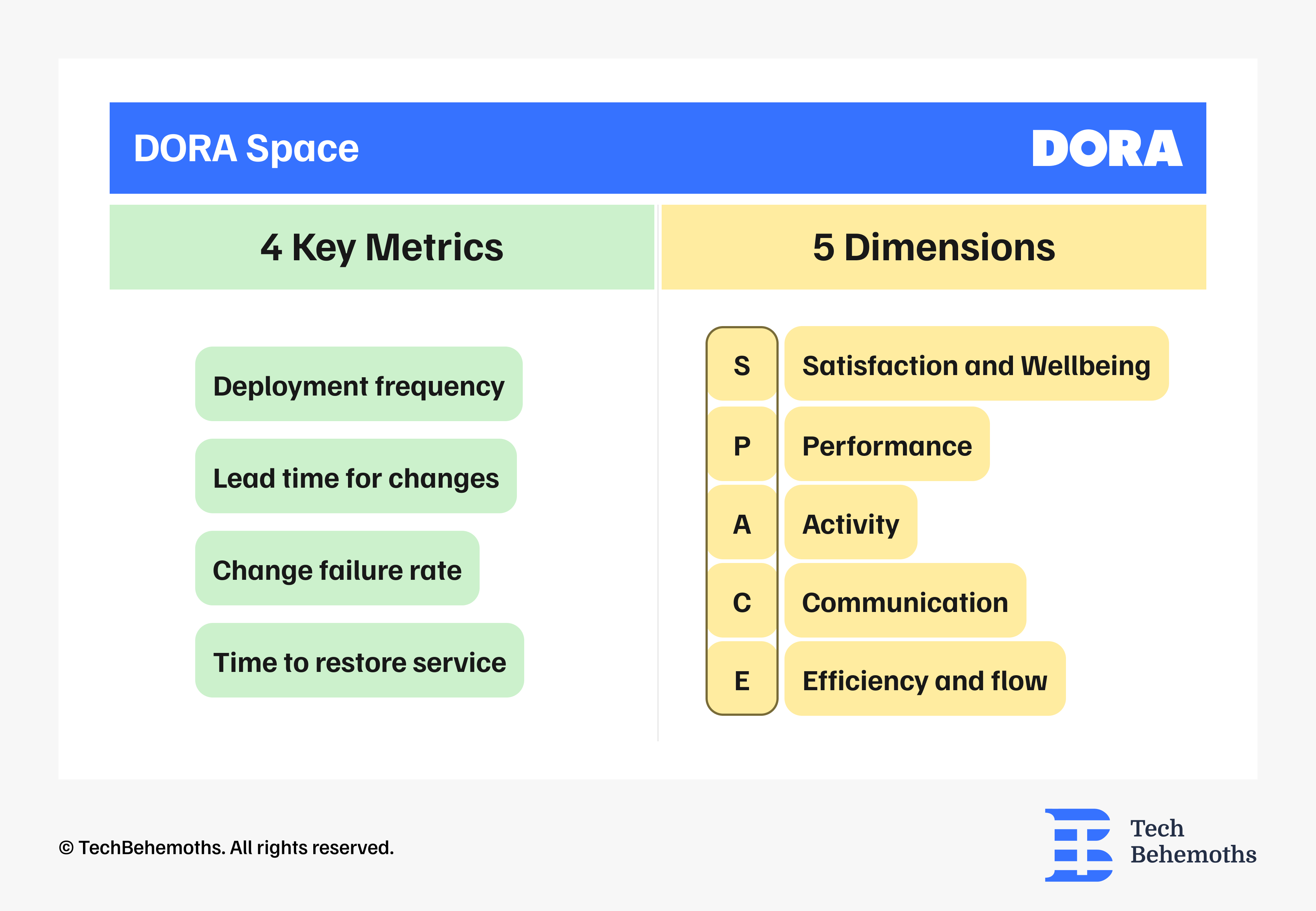
5 Common Mistakes to Avoid When Hiring a Software Development Team
And now, towards the end, being already very well-informed, let's list the most common mistakes when hiring a software development team.
Here are the most common 5 mistakes to avoid:
#1. Focusing only on technical tests. Technical skill is the starting line, not the finish line.
#2. Picking the cheapest offer without checking quality. A good team is an investment, not an expense.
#3. Skipping the evaluation of real projects. A portfolio tells you what they can say, but delivered projects show what they can do.
#4. Overlooking cultural fit. Cultural fit doesn’t mean they must think exactly like you, but it means they understand how you work.
#5. Ignoring communication and teamwork. Good communication is not a "bonus"; it ensures a smooth delivery.
Final Thoughts
That said, it’s important to remember that evaluating a software development team is about more than just checking their skills. It’s about understanding how they build, how they work, and how they collaborate with you. Ask the right questions, and if a team scores well on most of them, you’ve probably found a strong partner. If not, it’s better to keep looking than to pay the price later.
Choose wisely!
Looking for a Software Development Company?
Check Our List of Top Custom Software Development Companies
Related Questions & Answers
How long does it typically take to find and hire a team?
Should I work with freelancers or an established agency?
Which regions are most popular for outsourcing software development?
